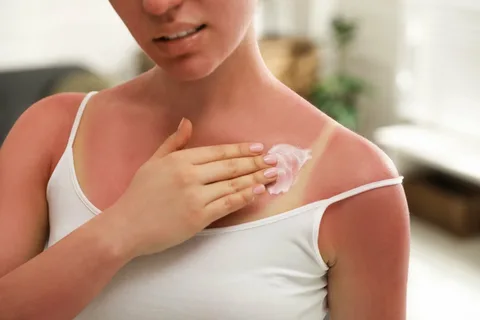Understanding Sun Allergies
Sun allergies, also known as photodermatitis or sun sensitivity, are a common condition affecting people worldwide. While some individuals may experience mild symptoms, others can endure severe reactions upon exposure to sunlight. Understanding the signs, causes, and prevention methods is crucial for maintaining healthy skin and avoiding discomfort.
What Causes Sun Allergies?
Sun allergies occur when the immune system reacts abnormally to sunlight. The exact cause varies from person to person, but common triggers include:
- Genetics: Some people inherit a predisposition to sun allergies.
- Certain Medications: Certain medications, such as antibiotics and nonsteroidal anti-inflammatory drugs (NSAIDs), can increase sensitivity to sunlight.
- Chemicals: Contact with certain chemicals found in cosmetics, fragrances, and skincare products can trigger an allergic reaction when exposed to the sun.
- Underlying Conditions: Individuals with conditions like lupus or autoimmune disorders may be more prone to sun allergies.
Signs and Symptoms
Recognizing the signs of sun allergies is essential for prompt treatment and prevention. Symptoms may include:
- Redness: Skin may become red or inflamed upon sun exposure.
- Itching or Burning Sensation: Many individuals experience itching or a burning sensation on the affected areas.
- Rash: A rash, often resembling hives or eczema, may develop on the skin.
- Blisters: Severe cases may result in the formation of blisters or lesions on the skin.
- Swelling: Swelling, particularly around the eyes and lips, may occur in some individuals.

Preventing Sun Allergies
While sun allergies can be bothersome, certain measures can help prevent or minimize their occurrence. Here are some tips to keep your skin safe:
Use Sunscreen
Applying broad-spectrum sunscreen with a high SPF (sun protection factor) is crucial for protecting your skin from harmful UV rays. Choose a sunscreen that is specifically labeled as suitable for sensitive skin to minimize the risk of irritation.
Wear Protective Clothing
Covering exposed skin with lightweight, protective clothing can provide an additional barrier against the sun’s rays. Opt for long-sleeved shirts, wide-brimmed hats, and sunglasses with UV protection to shield sensitive areas.
Seek Shade
Limiting your time in direct sunlight, especially during peak hours between 10 a.m. and 4 p.m., can reduce the risk of sun allergies. Whenever possible, seek shade under trees, umbrellas, or other structures.
Avoid Certain Products
Be mindful of the skincare and cosmetic products you use, as some ingredients may exacerbate sun sensitivity. Avoid products containing fragrances, dyes, or harsh chemicals that can irritate the skin when exposed to sunlight.
Stay Hydrated
Proper hydration is essential for maintaining healthy skin and minimizing the risk of sun-related complications. Drink plenty of water throughout the day to stay hydrated, especially when spending time outdoors.

Consult a Dermatologist
If you experience frequent or severe sun allergies, consider consulting a dermatologist for personalized recommendations and treatment options. They can help identify potential triggers and develop a tailored plan to manage your condition effectively.
| Aspect | Sun Allergy | Normal Sun Sensitivity |
|---|---|---|
| Cause | Abnormal immune reaction to sunlight | Normal reaction to sunlight |
| Triggers | Genetics, medications, chemicals, underlying conditions | Normal exposure to sunlight |
| Symptoms | Redness, itching, rash, blisters, swelling | Mild sunburn, slight discomfort |
| Severity | Can be severe, with blistering and swelling | Typically mild, resolves with time |
| Prevention Methods | Sunscreen, protective clothing, seeking shade, avoiding certain products | Sunscreen, limited exposure during peak hours |
| Treatment Options | Topical corticosteroids, antihistamines, avoiding triggers | Cooling measures, over-the-counter pain relievers |
Conclusion
Sun allergies can be a challenging condition to manage, but with the right precautions and preventive measures, you can enjoy the outdoors safely. By understanding the signs, causes, and prevention strategies outlined in this article, you can take proactive steps to protect your skin and minimize the risk of sun-related reactions. Remember to prioritize sun safety year-round, not just during the summer months, to maintain healthy, radiant skin.
Additional Tips for Sun Safety
In addition to the strategies mentioned above, here are some additional tips to help you stay safe in the sun:
Check the UV Index
Before heading outdoors, check the UV index for your area. This rating indicates the strength of the sun’s UV rays and can help you determine the best times to venture outside. Explore More About (Stomach Pain From Stress)
Reapply Sunscreen
Remember to reapply sunscreen every two hours, or more frequently if you’re swimming or sweating heavily. Even waterproof sunscreen can lose its effectiveness over time, so it’s essential to stay vigilant.
Wear Sun-Protective Clothing
Consider investing in clothing specifically designed to block UV rays. Look for garments with a UPF (ultraviolet protection factor) rating for maximum sun protection.
Avoid Tanning Beds
Tanning beds emit harmful UV radiation, increasing the risk of sunburn and skin damage. Opt for safer alternatives like self-tanning lotions or sprays if you desire a bronzed glow.
Monitor Medication Side Effects
If you’re taking medication that may increase sun sensitivity, be vigilant for any adverse reactions. Notify your healthcare provider if you experience any unusual symptoms after sun exposure.
Stay Informed
Stay informed about sun safety practices and incorporate them into your daily routine. Educate yourself about the risks of sun exposure and take proactive steps to protect yourself and your loved ones.
By following these tips and adopting a proactive approach to sun safety, you can minimize the risk of sun allergies and enjoy all that the outdoors has to offer. Remember, protecting your skin today can prevent problems tomorrow, so make sun safety a priority in your daily life.












